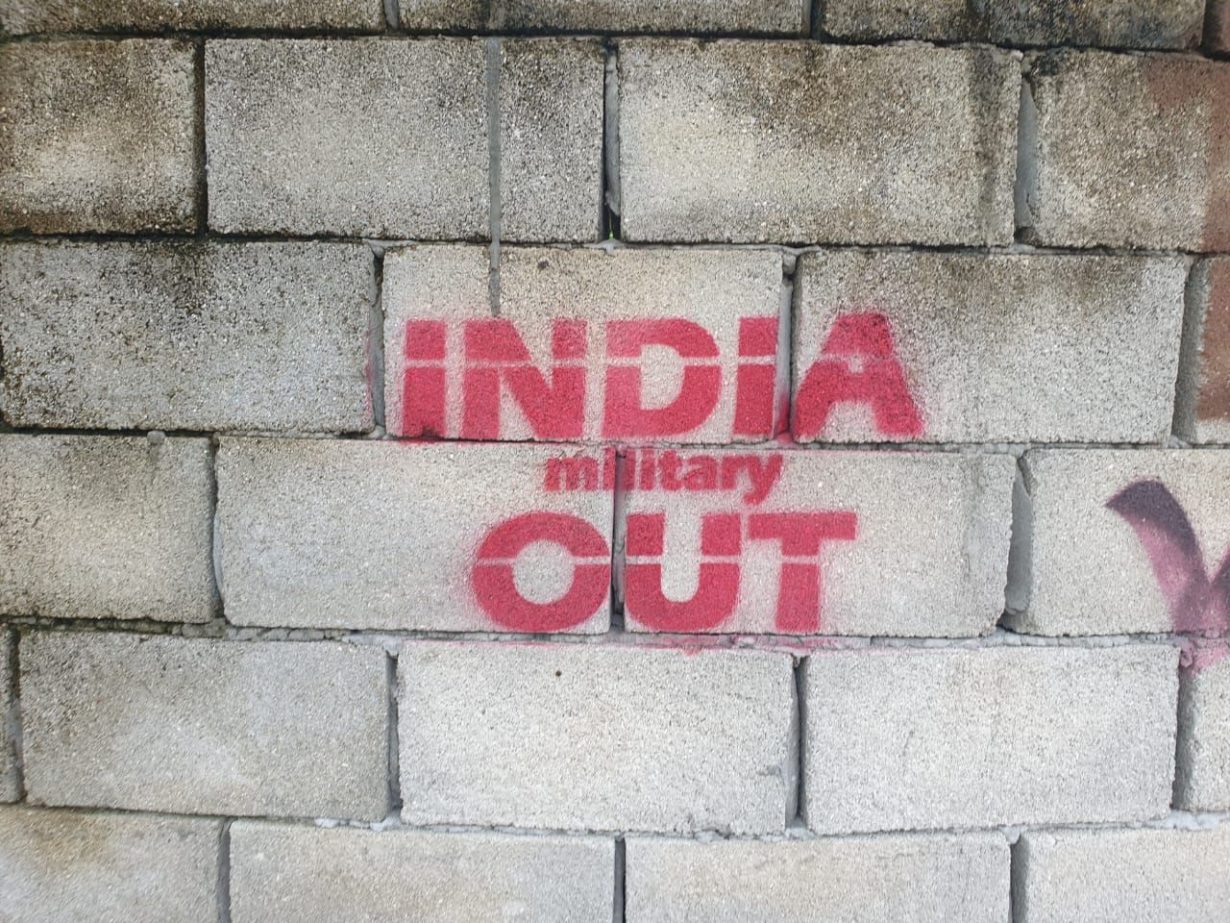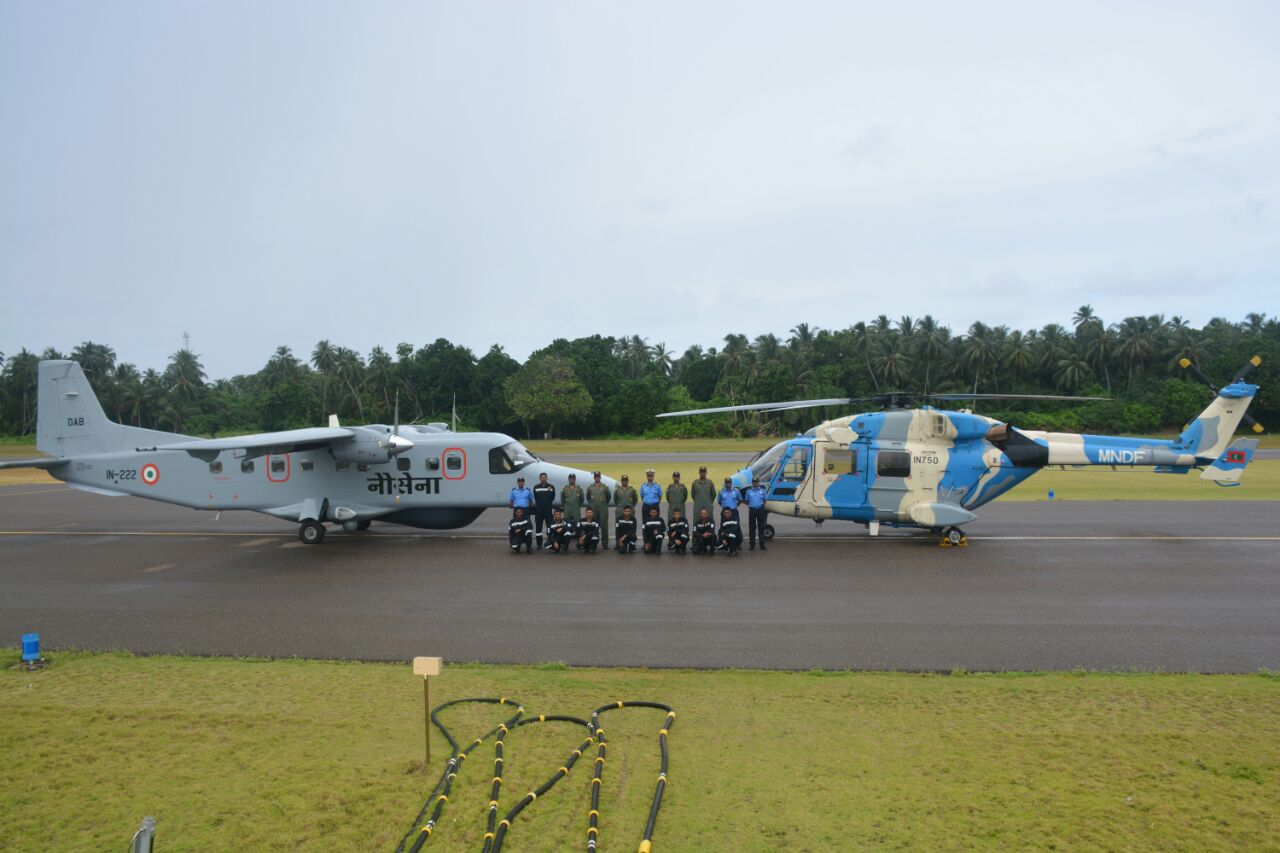After an emphatic victory in the recently concluded Maldives presidential elections, pro-China candidate Mohamed Muizzu declared he would kickstart the removal of Indian soldiers stationed in the atoll nation, as pledged during his campaign.
Mohamed Muizzu told an election victory celebration gathering of his supporters that he wouldn’t support a foreign force remaining in the Maldives against the wishes of its residents. “The people have told us that they don’t want foreign military here,” he said in his high-octane speech.
The election of Mohamed Muizzu has been seen as a significant setback for India in its geopolitical contest with China that plays out in the Maldives and the Indian Ocean. The presidential run-off poll has been viewed as a virtual vote on which regional power would most significantly influence the archipelago.
Although the rivalry between India and China in the Maldives is not new, it reached new heights during this election when Mohamed Muizzu sought to topple the incumbent Mohamed Solih’s administration. In the race that followed the nomination, Muizzo made his abject opposition to India’s alleged control over the Maldives a top priority.
Muizzu has accused Solih of putting the Maldives’ national security at risk because of the latter’s strong links to India. He maintains that the current administration has allowed the Indian military to establish and expand its influence and presence on Maldivian soil, a claim that Solih categorically rejects.
Since Solih’s unexpected victory in 2018, he has distanced the nation from Chinese investment that had soared during the previous administration and brought it much closer to India, which has had a long history of relations with the Maldives. That is now expected to change in China’s favor.
Anti-India sentiments have been brewing in the Maldives for over a decade, dating back to when Abdulla Yameen Abdul Gayoom of the Progressive Party (PPM) was elected president in 2013.

The “India Out” campaign engineered by the opposition and used by the incoming President is based on unproven claims that India wants to establish a military outpost in the Maldives through continued security cooperation.
India’s Military Presence In Maldives
The allegations made against India by the pro-China coalition have essentially been related to decisions made by the former Yameen administration, such as snubbing India by returning two Dhruv Advanced Light Helicopters (ALF) helicopters that were used for missions such as ocean search and rescue and maritime weather surveillance.
The Yameen administration charged that India’s desire for military action was “a disrespect to its sovereignty.” It claimed that New Delhi intended to surround the island when domestic politics erupted, and former President Mohamed Nasheed asked India to get involved.
After assuming power, Ibrahim Mohamed Solih reversed the directive passed by the Yameen government, prolonged the stay of the military personnel, and continued to operate the military choppers. However, the same issues are now back at the forefront again, and they are somehow more prominent and have a wider audience.
The coalition backing Muizzu in recent polls launched an “India out” campaign long back, promising to expel the Indian military presence. However, the Indian military presence in the atoll state includes just the two Dhruv Advanced Light Helicopters (ALF) helicopters operating in Male for several years.
Besides, India provided a Dornier aircraft to the Maldives National Defense Force (MDNF) in 2020 with the condition that while it will operate under the command and control of MNDF, the running costs will be borne by India.
The Dornier has since been assisting in the joint surveillance activities by India and the Maldives of the exclusive economic zone (EEZ) of the Indian Ocean atoll state.

In November 2021, the Maldives National Defense Force (MNDF) revealed that 75 Indian military troops stayed in the Maldives to assist the operations of the Dornier aircraft and two helicopters gifted by the Indian government. This presence, although minuscule, has been projected as a threat to Maldives’ security by the Muizzu faction.
Critics of the Solih administration have referred to the deployment of the Indian military as “crimes of this government” that might make the Maldives “an Indian slave” and cause it to “lose its independence and sovereignty.” In 2019, New Delhi also gifted a ‘Made in India’ Patrol Vessel to the Maldives National Defense Force to conduct extensive surveillance activities.
However, the elephant in the room is a naval facility coming up in Maldives. In February 2021, India extended a US$ 50 million line of credit to the Maldives for defense projects. At the same time, it also signed a deal with the Male government to construct and maintain a critical naval facility for the country’s military.
The agreement to “develop, support, and maintain” the Coast Guard harbor in Uthuru Thila Falhu was signed by Jaishankar and Mariya Didi, the Maldives defense minister. At the time, Didi said that the harbor and dockyard would be “another significant milestone” in bilateral defense cooperation.
The agreement, however, has been pitched to the Maldivian public as a ploy to station Indian troops on the country’s soil. Making attempts at debunking these claims, the incumbent President Solih iterated that the Indian military’s presence in the Maldives is purely to construct a dockyard and will not infringe upon his nation’s sovereignty.
It has had little effect on the results of the elections. Military observers believe that it is a vindication of the pro-China group in the Maldives that swept the election and has essentially paved the way for the expulsion of the Indian military as well as its influence over the country.
A Win For China?
Abdulla Yameen, a former president who supported China, was disqualified from running for office in August by the Supreme Court after being found guilty of corruption and money laundering. Muizzu entered the race with his backing.
During his administration from 2013 to 2018, former president Abdulla Yameen, the head of the People’s National Congress, officially made Maldives a part of China’s Belt and Road Initiative (BRI), paving the way for substantial Chinese capital and investment flowing into the country.
During this period, Beijing and Male signed agreements for significant infrastructure projects on the islands and a free trade pact, which helped China gain influence in the political landscape of the Maldives. But Yameen’s government also came under attack for this approach, and charges he had led the Maldives into a China debt trap were thought to have contributed to his loss in 2018.
With Yameen’s heir now on his way to take the oath of office, it is believed that China could effectively expand its influence in the Indian Ocean Region, a prospect India disapproves of.
This, in turn, is believed to hurt India’s interests. Srikanth Kondapalli, a professor in Chinese Studies at the Centre for East Asian Studies, Jawaharlal Nehru University, New Delhi, told EurAsian Times: “I think it is an exaggeration that it is a win for China over India.”
“The experience with the governments of Mohamed Nasheed, Abdullah Yameen Gayoom, and Ibrahim Solih indicates that the Chinese presence in Maldives is not very strong compared to the Indian presence and influence. China has no diaspora, no businesses, no military presence in Maldives. China has financed infrastructure and built administrative buildings, and that’s all.”
Professor Kondapalli believes that the region’s geography would make it difficult for the Maldives to detach itself from India. He said, “When you are in trouble, you will go to your neighbor, not a third distant country. For instance, when a water treatment plant exploded in Male, India immediately rushed with fresh water for the country on a destroyer. China also came in to help, but the water took 2-3 weeks to arrive.”
The Professor observed that Maldives has many existential problems that neighbors could solve. That factor and Maldives’ own needs would outweigh other factors. This may be true given that in 1988, for example, the Rajiv Gandhi administration dispatched Indian paratroopers and naval warships to the Maldives as part of “Operation Cactus” to thwart a coup attempt against the then-Abdul Gayoom government by a group of Maldivians.
Professor Kondapalli further said, “India may have not been able to live up to the expectations of the Male government. New Delhi has given helicopters, aircraft, and credit lines, but they have limitations. However, the ‘India Out’ campaign may have been financed by China, which has very deep pockets.”
The Maldives is a significant strategic location for India, China, and the West despite having a population of just over 500,000 and widely dispersed atolls. It is situated on the route of crucial east-west cargo shipping lines, including China’s Gulf oil imports.
Additionally, it is considered a waypoint for greater geopolitical control and influence over the Indian Ocean, notably for China, which is becoming more active in the region. It is likely then that Beijing would loosen control when it has finally acquired it after a long hiatus.
- Contact the author at sakshi.tiwari9555 (at) gmail.com
- Follow EurAsian Times on Google News




